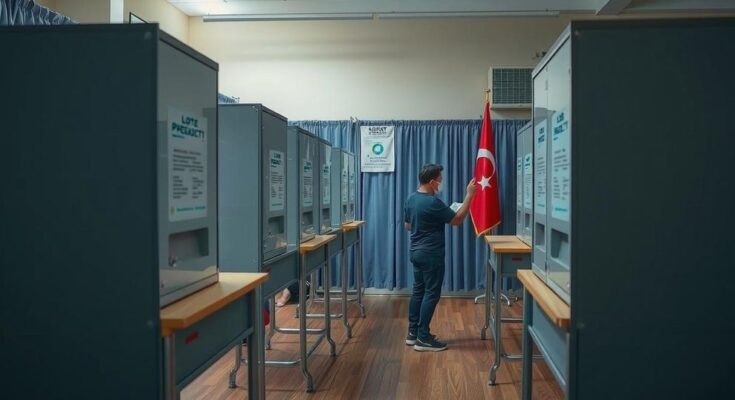Uruguay’s presidential runoff between moderates Yamandu Orsi and Alvaro Delgado is set for Sunday, with polls indicating a tightly contested race potentially decided by fewer than 25,000 votes. Orsi emphasizes a ‘modern left’ agenda, while Delgado seeks to maintain continuity. Both candidates will attempt to win over undecided voters as the election unfolds in a politically stable environment. Analysts suggest that economic conditions may influence the final decision.
Voters in Uruguay are set to participate in a decisive presidential runoff on Sunday, concluding a prolific electoral year in the South American nation renowned for its beaches and progressive policies. The contest features center-left candidate Yamandu Orsi, who has promised a ‘modern left’ approach, against continuity conservative Alvaro Delgado, whose candidacy is supported by the Colorado Party. Polling indicates a highly competitive race, with projections suggesting a margin of fewer than 25,000 votes between the candidates.
The political landscape in Uruguay is characterized by its relative stability, lacking the sharp ideological divides evident in neighboring countries such as Argentina and Brazil. Polling stations will be open from 8 a.m. to 7:30 p.m. local time, with initial results anticipated shortly after polls close. In the previous election, Orsi garnered 43.9 percent of the votes, while Delgado received 26.8 percent, significantly aided by a coalition with the Colorado Party.
Orsi aims to assure the electorate that his policies will maintain continuity, while Delgado leverages the popularity of President Lacalle Pou, who is unable to seek re-election. Neither candidate commands an outright majority in the lower house, although Orsi’s Broad Front holds a majority in the Senate with 16 out of 30 seats. Both candidates are vying for the support of those voters who opted for smaller parties in the first round and those who abstained from voting.
During the especially heated campaign, some voters expressed uncertainty about their choices. Uruguayan analysts suggest that despite a global trend of declining support for incumbent parties due to economic hardships, Uruguay’s strong economic performance may favor Delgado. As the year unfolds with significant implications for the country’s political direction, many await to observe whether the election results will defy international patterns of electoral discontent.
Uruguay, with a population of approximately 3.4 million, is recognized for its political moderation and progressive social policies, such as the legalization of marijuana. The nation has navigated a complex electoral period, leading to the current runoff election between Yamandu Orsi and Alvaro Delgado. With influences from various political coalitions and an attempt to appeal to a diverse electorate, the current political climate reflects both continuity and change amidst a backdrop of global electoral trends.
As Uruguay prepares for a closely contested presidential runoff, the outcomes hang in the balance amid deep public interest. The candidates, Orsi and Delgado, epitomize the nation’s moderate political landscape, which stands in contrast to the divisive atmospheres experienced in other countries. Voter sentiment appears to reflect a desire for continuity, yet uncertainty lingers about the electoral outcome, adding layers of complexity to this pivotal moment in Uruguayan politics.
Original Source: www.arabnews.com




